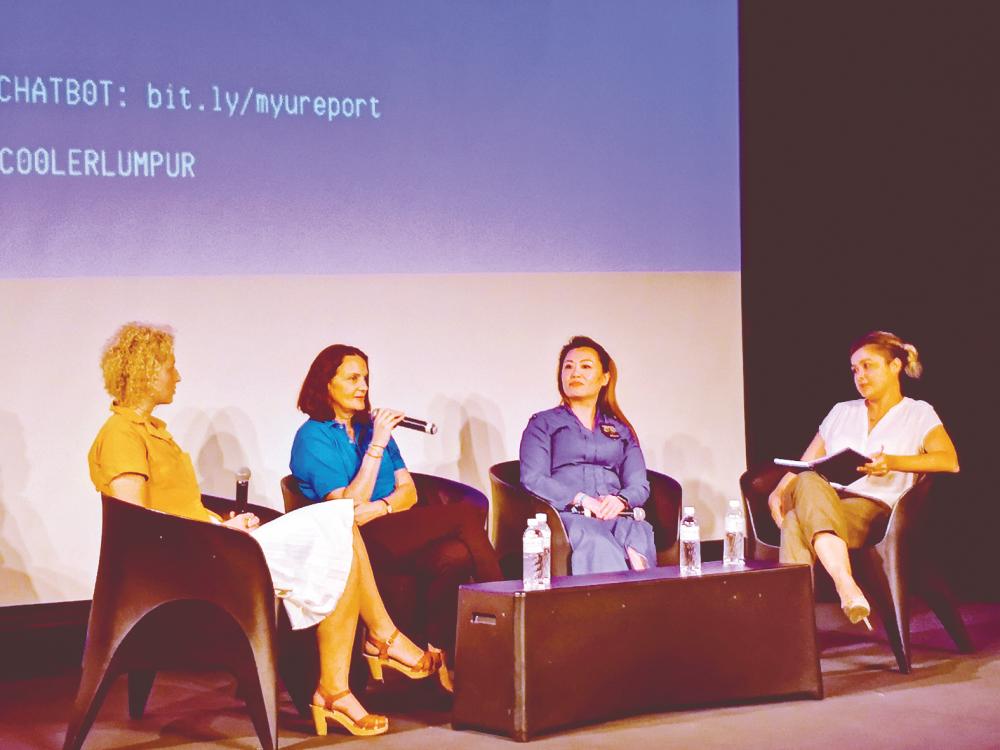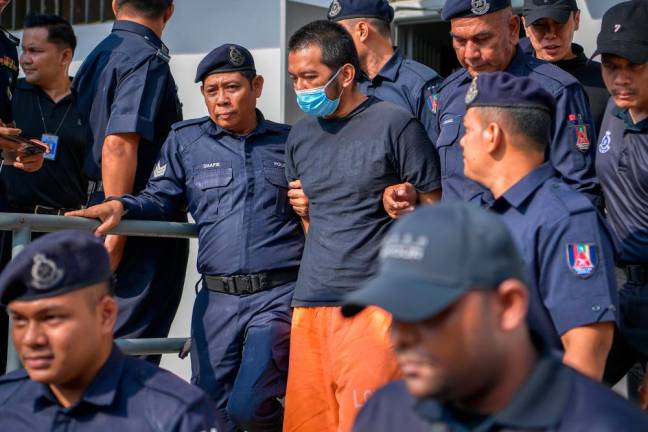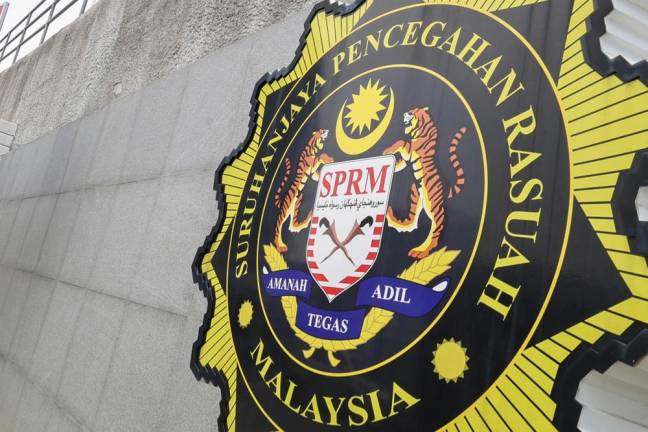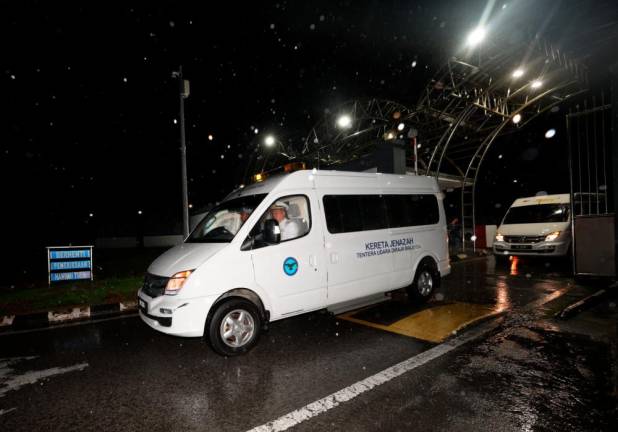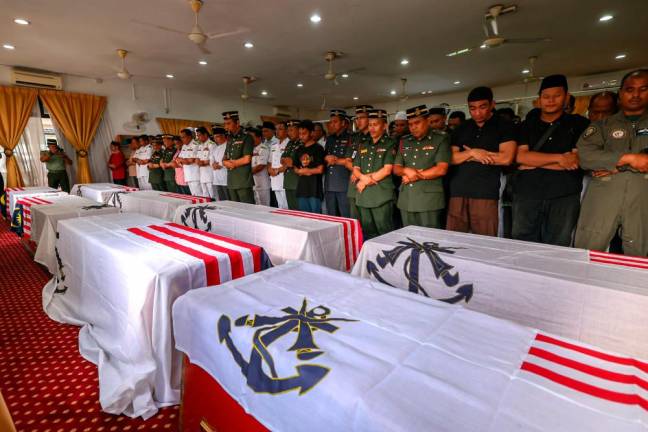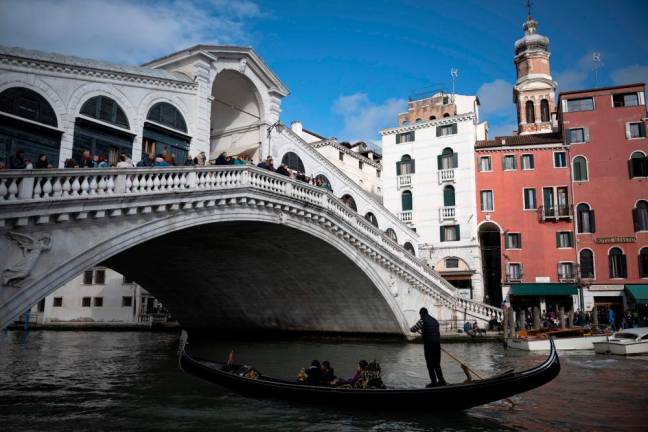The sixth iteration of The Cooler Lumpur Festival which ran from Oct 1 to 7 this year, saw the convergence of powerful voices and figures congregating to exchange ideas on pertinent issues in the country. One particularly on child marriages and rights was raised during the “Who Run the World” discussion.
The panel was headlined by Musawah Programme manager Suri Kempe, Girl Guides Association Malaysia International Commissioner Thammy Chong, The Guardian Southeast Asia correspondent Hannah Ellis-Petersen and Marianne Clark-Hattingh who assumed leadership of the UNICEF Malaysia country office.
Prevailing topics revolved around gender inequality, violence against women, and of course, the issue of child brides in a modern society that needs to take a hard look at how gender roles should be perceived, be it through religious or social lenses.
“They justify it as a practice of the Prophet, etc, but when it comes to looking after their wives and doing their duties that are religiously mandated, that suddenly flies out the window. It’s really interesting,” said Suri.
To add context, Suri represents Musawah, a global movement for equality and justice in the Muslim family. The organisation is led by feminists who work to advance human rights for women in the Muslim contexts.
“It’s easier to implement the law but to change mindsets and attitudes is something really important that we have to do, from ground up,” said Thammy.
Responding to a question from the floor on how many men have worked and participated in grassroots initiatives, Marianne relied, “It’s really important that men are involved in this. The way UNICEF works is more in partnership with others”.
She explains further that it is not just an issue that affects girls, but also one that affects boys. “We’re seeing change globally, when men stand up and voice their opinions in support of ending child marriages.”
Marianne postulates that when it gets pushed and seen as singularly as a woman’s issue, the problem is marginalised. This is evidently true and spans beyond just child marriages. Take sexual harassment, the #MeToo movement and actor Terry Crews in America for instance.
Yet, the actor’s advocacy for women’s rights and activism against sexism is but a drop in the ocean, particularly when compared to Malaysia. While there is support by men on these issues that are faced by Malaysian children and women, the stigma that only women can discuss women problems and only men can discuss issues involving other men, continues to persist.
“Perhaps there aren’t enough men speaking up about this issue in Malaysia, and there aren’t enough women in positions of power either to give it voice,” Marianne suggested.
“That said, I think it’s starting, and as we move forward, we have had meetings with our CSO and NGO partners to develop a strategy for outreach, and we are mindful that we need men to be a part of that. It’s not a women’s issue, it’s not a girl’s issue ... it’s a child brides issue and children’s rights are universal,” surmised Marianne.
Child marriages take place all over the world, even in developed countries including the United States and United Kingdom. According to reports by the UNFPA, 25 million child marriages were prevented in the last decade; around the year 2000, one in three women between the ages of 20 and 24 reported they had been married as children; and in 2018, one in five.
Although the rates are slowly decreasing around the globe, there are some regions where child marriage is more prevalent and the numbers are hardly declining.
People across the world must understand that child marriage undermines children’s human rights. It derails their lives and future opportunities and affects the world, including you and I. While the vast majority of child brides involve girls, boys are also married off.
So how do we end child marriage as a nation. And what can we do as individuals to help stop this atrocity?
Here are some suggestions:
▶ Laws and existing laws against child marriage should be enforced, especially when girls or boys, at risk of child marriage, or who are already married, seek protection and justice.
▶ The legal age of marriage should be raised to at least 18.
▶ More awareness must be disseminated across the globe in various ways and means, against child marriage.
▶ Governments, civil society and other partners must work together to ensure children have access to education, health information and services, and life-skills training for “healthy” lives where they can enjoy a broader range of options, and are more likely able to avoid child marriage.
▶ Individually, discuss child marriage with family and friends, in your offices, in society, even and especially with your children. Ideas and opinions must be heard so as to learn and develop towards healthier families, stronger societies, vibrant economies, but most of all, well-rounded individuals.
For more information on this global issue and how you can help put a stop to this distressing concern, visit ww.unfpa.org/child-marriage



